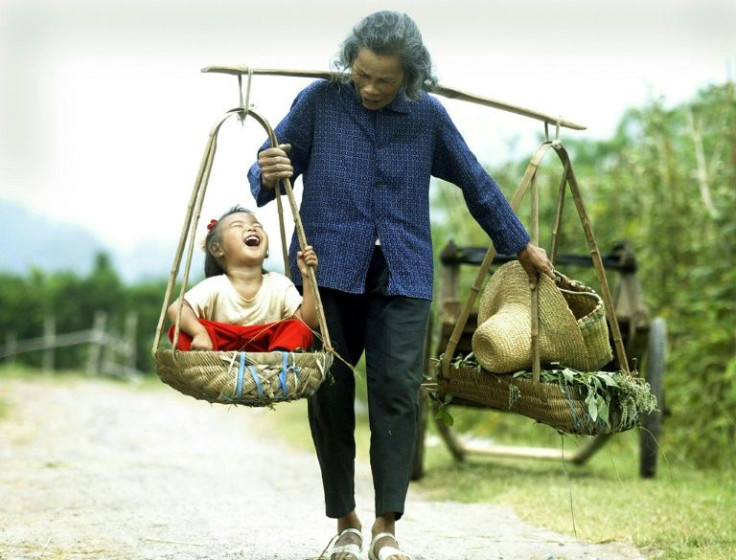What Happens To Grandmothers' Brains When They See Grandchildren? New Study Captures Their Reactions
KEY POINTS
- Researchers analyzed the brain reactions when the women were looking at photos of their grandchildren
- Results suggest that empathy is a key component in their responses
- Many of them said they enjoyed being a grandmother more than a parent: Researchers
What exactly happens to the brains of grandmothers when they see their beloved grandchildren? Researchers have captured a "neural snapshot" of the reaction, and it's different from what happens when they see their adult-aged children.
People tend to assume that fathers are the next most important caregivers of children after mothers. However, that is not always the case. Sometimes, it's the grandmothers who are the "primary" helpers, James Rilling, the lead author of a new study, said in a news release from Emory University.
"In many societies, grandmothers are important carers, and grandmaternal investment is often associated with improved grandchild well-being," the researchers wrote.
For the study, the team wanted to examine the brain function of healthy grandmothers "and how that may relate to the benefits they provide to their families."
"I wanted to get a sense of the rewards and challenges of being a grandmother," Rilling said in the news release.
The study included 50 grandmothers who were having young grandchildren from three to 12 years old. These women completed questionnaires about their experiences as a grandmother, such as the activities they do with their grandchildren, how much time they spend with them and their degree of attachment to the children.
Their brain functions were measured through functional magnetic resonance imaging (fMRI) while they were looking at four different pictures – images of their grandchildren, an unknown child, the same-sex parent of their grandchild and an unknown adult.
The researchers found that pictures of their grandchildren activated the parts of the brain that are involved with emotional empathy (insula and secondary somatosensory cortex) and movement (motor cortex and supplementary motor area).
"That suggests that grandmothers are geared toward feeling what their grandchildren are feeling when they interact with them. If their grandchild is smiling, they're feeling the child's joy. And if their grandchild is crying, they're feeling the child's pain and distress," Rilling said.
When they were looking at pictures of their adult child, the part of the brain involved in cognitive empathy had a stronger activation. This suggests that the grandmothers may be trying to understand what their adult child is feeling "but not as much from the emotional side."
"An adult child doesn't have the same cute 'factor,' so they may not elicit the same emotional response," Rilling said.
However, everyone did not respond the same way. In some grandmothers, the areas involved in cognitive empathy were activated when they viewed pictured of their grandchildren. In these cases, the questionnaires revealed that they "desired greater involvement in caring for the grandchild."
The researchers compared the current findings to that of an earlier study involving fathers and it showed that grandmothers had more "strongly activated" regions involved in emotional empathy and motivation.
"All in all, our findings suggest that emotional empathy may be a key component of grandmaternal responses to their grandchildren," the researchers wrote.
The grandmothers reported facing the "main challenge" of trying not to interfere when they disagree with how the children should be raised. However, many of them said they enjoyed being a grandmother more than being parents as it involved less "time and financial pressure," Rilling noted.
"Here, we're highlighting the brain functions of grandmothers that may play an important role in our social lives and development," study co-author Minwoo Lee said. "It's an important aspect of the human experience that has been largely left out of the field of neuroscience."

© Copyright IBTimes 2025. All rights reserved.






















